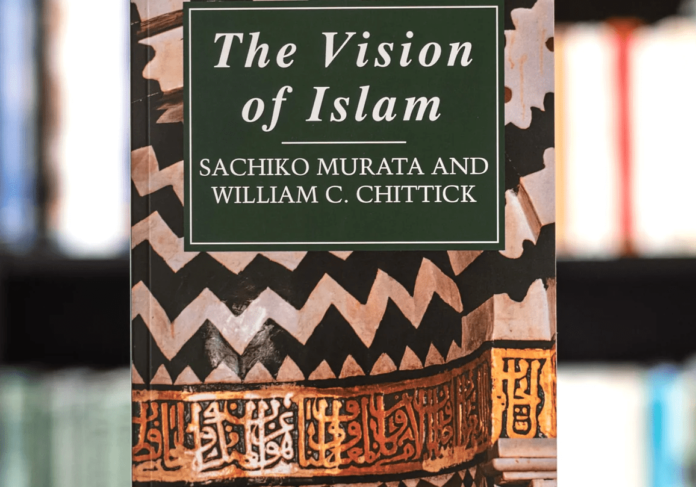So tell the tale — perhaps they will reflect. [Koran 7:176]
“The Vision of Islam” authored by Dr. Sachiko Murata and Dr. William C. Chittick delves into the multifaceted aspects of Islam, including practice, faith, spirituality (Ihsan), and the Islamic perspective on history, drawing from the teachings of the Hadith of Gabriel. Dr. Israr Ahmed (may Allah bless him) held a deep appreciation for this book, fervently endorsing it to all Muslims. Here are some excerpts shared with permission. There has been no alterations in the original text.
Divine Names
It should be clear that the workaday concept of God cannot do justice to a religion that uses its own idea of God as the absolute center from which everything else is judged. To begin to understand what Muslims mean by God, we need to turn to the Koran.
Since the Koran itself is God’s speech, everything within it expresses God, just as everything you say—even if you are quoting someone else—expresses who you are. But in order to understand God’s self-expression, we need a vantage point from which to begin our survey. The obvious vantage point to take is the first pillar of the religion, the Shahadah, the fact that “There is no god but God.”
What sort of being is designated by this word God? The typically Islamic way of answering this question is to refer, in the first place, to what the Koran says explicitly about God (since everything it says refers implicitly to God). Here we find that the Koran has a great deal to say.
One way to find out what the Koran says about God is simply to read the book, but we have already suggested that a number of barriers stand in the way of making this an easy approach for modern people. This task can be made easier by classifying, with the help of some standard categories found in Islamic theology, the types of things that are said about God. It needs to be kept in mind that the Koran is an infinitely rich book that has inspired countless philosophers, theologians, jurists, poets, and artists over the centuries, not to speak of its effect on people from every other walk of life. In other words, we cannot begin to do justice to the Koran; what we have to say on any topic is always preliminary and schematic. In the actual text, and in the way development takes place over history, things are enormously more complex. With this caveat in mind, we can say that the Koran summarizes its teachings about God in what it calls the “most beautiful names” (al-asma’ al-husna).
The word al-husna is the superlative adjective from hasan, which means “beautiful” and “good.” By calling God’s names “the most beautiful,” the Koran is implying that, just as God himself is good and beautiful, so also the names he gives to himself in the Koran are good and beautiful, because they express his beauty. And, just as God’s beauty and goodness infinitely surpass those of his creation, so also the beauty of his names is far greater than the beauty of the names of other things.
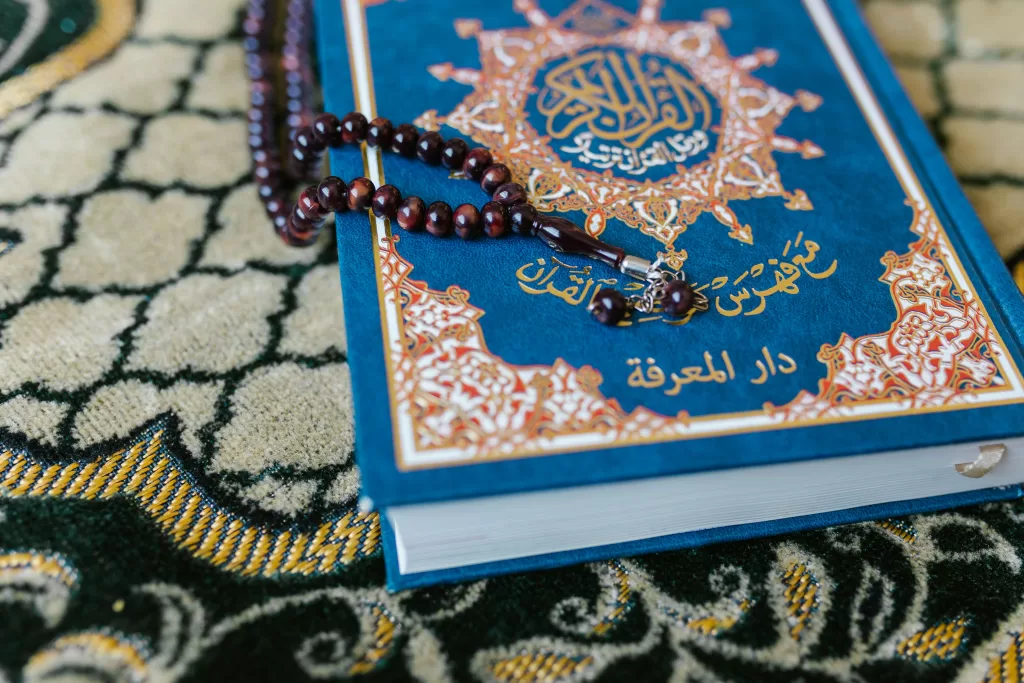
In a famous hadith, the Prophet said that God has ninety-nine names. Books about the ninety-nine names of God have played an important role in Islamic theology. As many authors of these books point out, the number should not be taken too literally, since there is no completely dependable list of the names, and it is easy to find more than ninety-nine names of God in the Koran (although determining which Koranic expression is to be considered a most beautiful name of God is a task with important theological implications).
In any case, there is no disagreement on the fact that the Koran often ascribes names to God. Among commonly employed Koranic names are Merciful, Compassionate, Knowing, Desiring, Alive, Powerful, Creator, Forgiver, and Loving. Notice that these are not personal names, in contrast, for example, to Jupiter or Shiva. God has no personal names, with the possible exception of Allah. We say “possible,” because the issue is not addressed in quite the same way in Islamic theology. Many Muslim theologians think that Allah is a proper name (ism `alam) that God has given to himself, but there is no word that corresponds exactly to the English personal. As a proper name, Allah has no specific meaning, any more than London has a specific meaning that would demand that every town called London has certain qualities.
Other theologians prefer to derive the name Allah from one of several roots, making it a name with a meaning. Then it would be similar to names like Knowing, Willing, and Compassionate. For example, some theologians derive the word Allah from ilah and hold that it means simply “the God,” although there are several other suggestions as well. Modern philologists typically consider this particular opinion to be correct. But this is not simply a question of philology, because it also has theological implications, and this helps explain why many Muslim authors ignore what modern scholars consider obvious. In polytheistic religions, each god typically presents a personal face that embodies one or more qualities. Thus, for example, Hindu mythology presents us with many accounts of the acts and exploits of gods such as Brahma, Vishnu, and Shiva, and these accounts are presented as if the gods were persons. At the same time, Hindus often say that Brahma is the Creator, Vishnu the Preserver, and Shiva the Destroyer. But each of these gods has many other qualities as well, and the qualities often overlap with those of other gods.
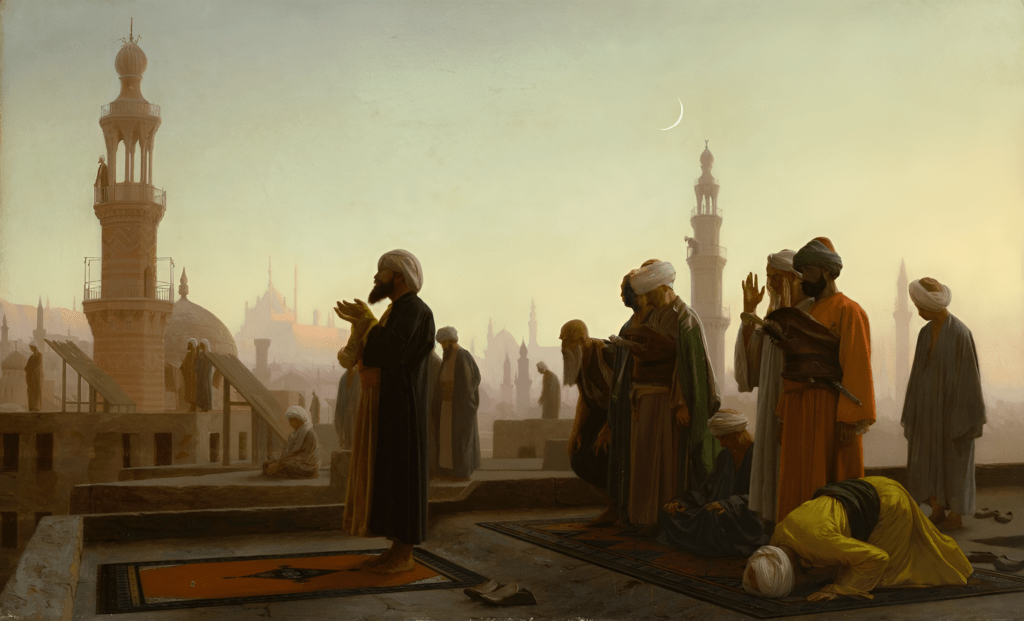
The Koranic names of God play a role in the Islamic world view that is in certain ways analogous to the role of the multiple divinities in some forms of polytheism, with the important and fundamental difference that the names are never personified or looked upon as separate beings. Each name represents an attribute or a quality, not a concrete thing. For example, God is never referred to as “father” or “heaven,” much less as “sun” or “moon.” The divine name with perhaps the most concrete sound is King. But this name, like other divine names, does not imply that God is pictured in concrete terms. Rather, the name means that God is a reality that possesses the attributes of kingship to such a degree that nothing else really deserves the name. If God is King, this means that all power and ruling authority belong to him, while earthly kings, presidents, and dictators represent at best pale reflections of God’s kingly power.
Tawhid means that the qualities denoted by God’s names belong truly to God and only secondarily or metaphorically to the creatures. Any divine name can be placed in the sentence of tawhid, “There is no god but God.” Thus the first Shahadah can be utilized as a quick formula for stating the various implications of tawhid.
If God is the Merciful, then there is no god but the Merciful. A god, we said, is “anything that is taken as an object of worship, adoration, or service.” The Merciful is the source of mercy, which is goodness, kindness, and love directed toward others. The Merciful is the object of worship and service because everyone needs mercy to survive. Without mercy, we would have no goodness, kindness, and love.
Or rather, we would not even be here, since our existence itself is a gift, for which gratitude is due. Hence the Shahadah tells us that all mercy is the gift of the Merciful. “There is no god but the Merciful” means that “There is no mercy but God’s mercy,” or “There is none merciful but the Merciful.” God’s mercy overshadows all the mercy in the universe. His mercy is true mercy, and other mercy is not worthy of the name. The Prophet expressed this idea in the following hadith:
God created a hundred mercies on the day He created the heavens and the earth, each mercy of which would fill what is between the heaven and the earth. Of these He placed one mercy in the earth. Through it the mother inclines toward her child, and the birds and animals incline toward each other. When the day of resurrection comes, He will complete those mercies with this mercy.
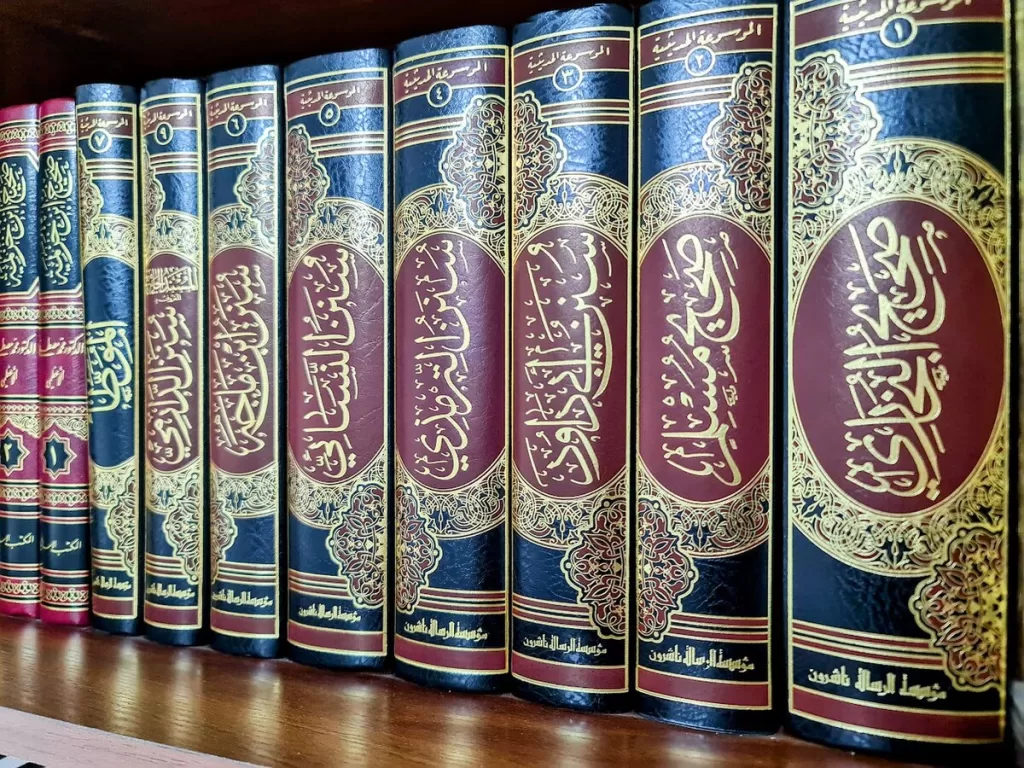
God is the Praiseworthy. In other words, as the first sentence of the Koran says, “Praise belongs to God.” What is praiseworthy in this world is what is good, true, and appropriate. It is, in short, anything real; that is, anything that corresponds with the underlying nature of reality, which is God himself, who is goodness, beauty, and praise worthiness. To say “Praise belongs to God” is to say that God alone deserves the name “praiseworthy.”
God is the Knowing. There is no god but the Knowing. All knowledge derives from the Knowing. No one has any knowledge but the Knowing. There is none that knows but God. All human knowledge is simply one degree or another of ignorance.
God is the Strong. There is none strong but the Strong. All strength belongs to God. All physical, worldly, political, and cosmic strength is nothing before the infinite strength of God. “The strength, all of it, belongs to God” (2:165). “There is no strength but in God” (18:39). As the Prophet put it in a formula that Muslims frequently repeat, “There is no power and no strength but in God, the High, the Tremendous.”
God is the Creator. None creates but God. As the Koran expresses it, turning the Shahadah into a rhetorical question, “Is there any creator apart from God?” (35:3)
God is the Permanent. There is nothing permanent but God. “Everything is perishing except His face” (28:88). “Everyone in the earth disappears, but there remains the face of your Lord, the Possessor of Majesty and Generous Giving” (55:26).
God is the Independent. None is independent but God. Everything in the heavens and earth depends utterly upon God for its existence and subsistence. “O people, you are the dependent upon God, and God—He is the Independent, the Praiseworthy” (35:15).
God is the “Owner of the kingdom” (3:26). God alone is owner of things, and nothing owns anything for itself. “To God belongs the kingdom of the heavens and the earth” (3:189, 5:17, etc.). “God has no associate in the kingdom” (17:111). “Blessed is He in whose hand is the kingdom, and He is powerful over everything” (67:1).
We will not go through all the ninety-nine names of God, but let us look at one more name which, in a sense, brings home the meaning of tawhid more clearly than any other. That is al-haqq (the Real).
God is the Real; there is nothing real but the Real; everything other than God is unreal, ephemeral, transitory, illusory, vanishing, nothing. In short, every quality and characteristic of things that has a positive side to it derives from a divine quality and owes its existence to God. Everything good, praiseworthy, permanent, and real belongs to God.
Therefore “Praise belongs to God,” and to no one else.
The cosmos or universe is commonly defined as “everything other than God.” The first Shahadah means that the cosmos is unreal. In the last analysis, it is nothing compared to the Real, but this perspective does not lead to nihilism. Nihilism demands that the nothingness and illusory nature of our existence yield a sense of meaninglessness and despair, but tawhid leads to confidence, faith, and joy. If the world and ourselves are unreal, how do we explain the fact that we are here, aware of our own unreality? How can we say we are unreal when we are saying it? Our selves, our speech, and our understanding must have some sort of reality, or else the self could never understand and never say that it is unreal. Hence, in the midst of the unreality of the world, there is some sort of reality. If there were no reality whatsoever, why would God bother talking to us?
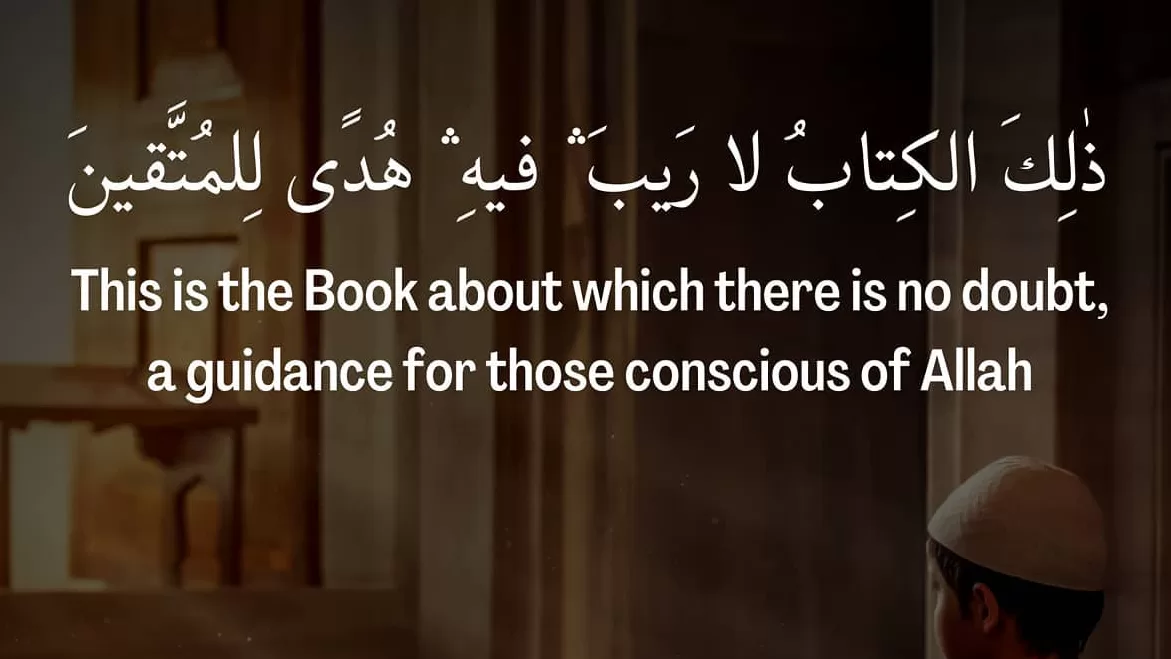
However, this reality that is found in the world does not belong to ourselves or to the world. The reality belongs to God—”Praise belongs to God.” We are — as “we” —unreal, but inasmuch as God shows mercy and generosity to us, we are real as a result of mercy and generosity.
One way to sort out this confusing situation is to say that God’s reality is absolute, but our reality is relative. God’s reality is permanent and unchanging; it is the standard by which all things are judged. All other realities exist as a function of God’s reality. Hence other things can only be understood in relation to God—their reality is relative. “There is no god but God” means that everything other than God has to be understood in relation to God.
If we do not take God—the absolute point of reference—into account when trying to understand something, we can only understand that thing in relation to other unreal things. Our knowledge will remain unreal, uncertain, changing, and undependable. We will be thrown into doubt and perplexity. People can have sure knowledge only if they have perceived the absolute point of reference, and this depends upon tawhid. Tawhid, in turn, brings about a commitment known as faith. Once again, we are brought back to the coincidence of knowledge and faith. It is no accident that Sura 2 of the Koran begins with the words, “This is the book in which there is no doubt.” In the Islamic view, doubt can only be removed through tawhid, which allows people to recognize that every positive quality is rooted in the Absolute Reality.
To be continued ……
Book References:
[1] Vision of Islam: https://www.amazon.com/Vision-Visions-Reality-Sachiko-Murata/dp/1557785163
اردو ترجمہ مکمل کتاب
http://www.williamcchittick.com/wp-content/uploads/2019/06/Chittick-and-Murata-Vision-of-Islam-Urdu-Translation-by-Muhammad-Suheyl-Umar.pdf \ https://salaamone.com/vision/https://traditionalhikma.com/wp-content/uploads/2015/02/Vision-of-Islam-by-Sachiko-Murata-and-William-C.-Chittick.pdf
Vision of Islam-5; https://defencejournal.com/2024/02/10/the-vision-of-islam/


